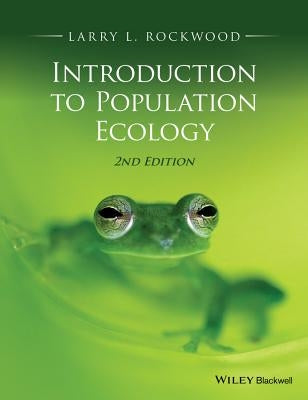Description
Introduction to Population Ecology, 2nd Edition is a comprehensive textbook covering all aspects of population ecology. It uses a wide variety of field and laboratory examples, botanical to zoological, from the tropics to the tundra, to illustrate the fundamental laws of population ecology. Controversies in population ecology are brought fully up to date in this edition, with many brand new and revised examples and data.
Each chapter provides an overview of how population theory has developed, followed by descriptions of laboratory and field studies that have been inspired by the theory. Topics explored include single-species population growth and self-limitation, life histories, metapopulations and a wide range of interspecific interactions including competition, mutualism, parasite-host, predator-prey and plant-herbivore. An additional final chapter, new for the second edition, considers multi-trophic and other complex interactions among species.
Throughout the book, the mathematics involved is explained with a step-by-step approach, and graphs and other
visual aids are used to present a clear illustration of how the models work. Such features make this an accessible introduction to population ecology; essential reading for undergraduate and graduate students taking courses in population ecology, applied ecology, conservation ecology, and conservation biology, including those with little mathematical experience.
Author: Larry L. Rockwood
Publisher: Wiley-Blackwell
Published: 06/15/2015
Pages: 384
Binding Type: Paperback
Weight: 1.45lbs
Size: 9.60h x 7.40w x 0.80d
ISBN13: 9781118947579
ISBN10: 1118947576
BISAC Categories:
- Science | Life Sciences | Ecology
About the Author
Larry Rockwood is Professor of Biology and Environmental Science and Policy, and Chairman of the Department of Biology at George Mason University in Fairfax, Virginia, USA. He earned his B.S. degree in Biopsychology and his Ph.D. degree in Biology at the University of Chicago. His early research was conducted in Costa Rica where he studied foraging patterns in leaf-cutting ants. More recently he has collaborated on a variety of projects from human-coyote conflicts to aspects of avian ecology and plant ecology. He has been teaching introductory ecology, population ecology and tropical ecology for almost 40 years. In 2014 Dr Rockwood was presented with the David J. King Award in recognition of 'outstanding contributions to enhancing teaching and learning' by George Mason University.

